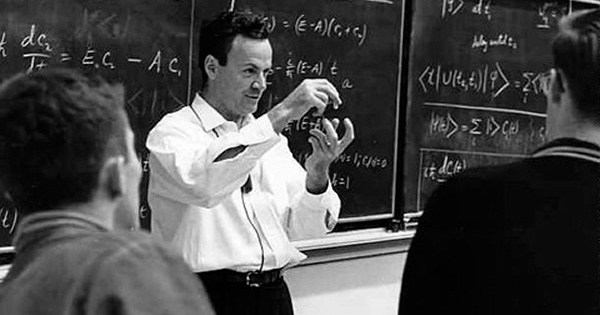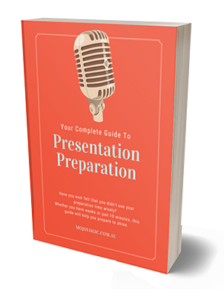In 1964 Richard Feynman spoke about the scientific method. His blend of humour, conviction and unbounded curiosity make this a compelling speech.
“Guessing is a dumb man’s job. Actually, it is quite the opposite and I will try to explain why…”
He is a funny man with an endearing New York accent. Actually, he looks a little like Jimmy Fallon, and speaks with same jaunty irreverence. Richard Feynman however, was much more than an entertainer. He was an accomplished physicist, author, teacher and Nobel prize winner. He was a brilliant scientist that refused to be bounded by the rules of convention. He was an iconoclast and a maverick.
Richard Feynman was also a gifted communicator. His many speeches, lectures and interviews provide excellent guidance for anyone that finds themselves with the challenge of needing to make the complex simple. Today’s threats of climate change and the global pandemic pose real challenges for our scientists to convey important information and insights to the public, the media and policymakers.
Here are some lessons from Richard Feynman explaining the scientific method, delivered more than 50 years ago.
Make the Complex Simple
This is perhaps Feynman’s most admirable skill (at least when it comes to the soft skills domain). Operating in the complex world of theoretical physics does not prevent him from attempting to bridge the gap. Feynman has left us a legacy of ideas that help non-scientists approach concepts that would not normally be open to them. In fact, the ‘Feynman Technique‘ is the ultimate test that you really understand a concept – can you explain it to somebody else using simple language.
From Feynman we have the axiom of learning – ‘the first principle is that you must not fool yourself.’
In general, we look for a new law by the following process; first, we guess it… Then we compute the consequences of the guess… to see what it would imply. Then we compare those computation results to nature or we say compare to experiment or experience. We compare directly with observation to see if it works. If it disagrees with experiment it is wrong. In that simple statement is the key to science. It doesn’t make a difference how beautiful your guess is, to doesn’t make a difference how smart you are or what his name is, its wrong. That’s all there is to it.
The Feynman technique has at its essence a commitment to sharing knowledge and understanding.
An Ethos of Unbounded Curiosity
Observe Richard Feynman’s communication style and you will quickly get a sense of who he was as a person. You can watch the lectures recorded earlier in his career and listen to the interviews that took place 30 years later and you will see the same spark. Curiosity is not an unusual trait among those who forge a career as scientists. But it is quite rare to see evidence of this trait consistently on display.
Feynman is animated in voice and movement. His eyes light up when he recalls a pertinent fact. His pace quickens as he approaches the crescendo of an argument. Even if you were not able to grasp the information he is attempting to impart, you would be swept away by the power of his own enthusiasm.
Humour
Feynman uses his well-honed sense of humour, like many good teachers. to help the learning go down.
His students are far more willing to absorb the facts and theories of his lectures when they are appropriately peppered with humour. Here, Feynman uses his gently sarcastic approach when debunking astrology or theorizing about the psychology of love or exploring the possibility of UFOs. Towards the end of this oration, his humour is put to use to dissuade would-be contributors from sending him letters of advice:
It’s something like this… You are working for a long time trying to open a safe and some Joe comes along and doesn’t know anything about what you are doing except that you are trying to open a safe. And he says why don’t you try 10-20-30. Cause you’re busy, you’re trying a lot of things. Maybe you already tried 10-20-30. Maybe you know the middle number is 32 not 20. Maybe you know it is a 5 digit combination… so these letters don’t do any good. Please stop sending them.
Richard Feynman on the scientific method:
A Speech a Week Series
Words have the power to change the world. Speeches are used by leaders, revolutionaries and evangelists to persuade people to think differently, to feel something new and to behave in remarkable ways.
In this series, we will examine one notable speech per week. We hope to cast a wide net – including politicians, business leaders, preachers, entertainers and philosophers. These articles will consider matters of content and style to uncover the secrets of oratorical success.
By examing the components of speechcraft we can improve our own powers of persuasion. We will come to appreciate the craft of eloquence – guarding against silver-tongued miscreants whilst gradually building our own expressive capability.
If you would like to contribute to the series by suggesting a speech, please send us a message via the mojologic website.


